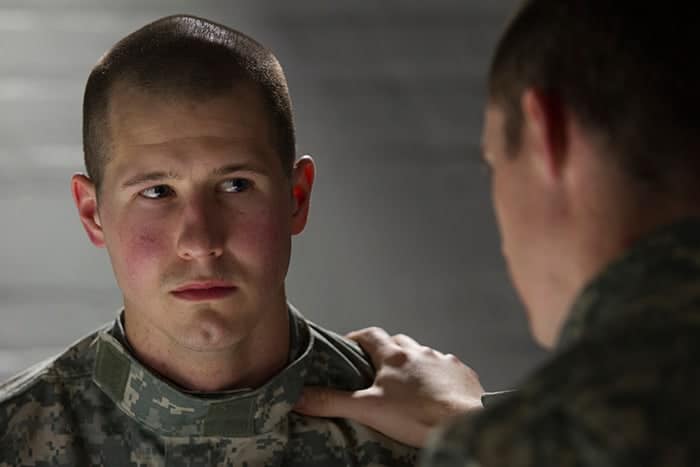The Far-reaching Effects of PTSD in Veterans
Post-traumatic stress disorder (PTSD) is a psychological condition caused by exposure to traumatic events that are outside the normal range of human experience. These events shake the foundation that our mental health is built on and create a disconnect between the victim’s expectations and reality. The effects of PTSD in veterans are not always visible.

This disconnect causes sufferers to lose faith in the stability and normality of their world. Without this faith the smallest task becomes harder. The effects of PTSD create a deep distrust of natural laws and, in the worst cases, cause a complete loss of function as the sufferer retreats into anxiety and depression.
An overview of the effects of PTSD
With an increase in the number of cases during the Gulf War and War in Afghanistan, researchers are stepping up their efforts to understand both the cause and the effects of PTSD on veterans and civilians. Although many of the traumatic events that cause PTSD are found solely in combat, the effects can also be found in civilians who undergo accidents or abuse.
PTSD is present when the victim undergoes a traumatic event that they cannot intellectually process. Without integrating the experience, the human mind stops functioning correctly and resorts to one of three coping mechanisms to function. These three mechanisms are hyperarousal, re-experiencing and numbing/avoidance.
Hyperarousal
Some sufferers of PTSD cannot reset their body to its normal state. Their body continues to function at the heightened state it adopted during the traumatic event. The ‘fight or flight’ response doesn’t get turned off after the danger is over.
Hyperactivity, insomnia, lack of concentration, irritability and panic are just some of the effects of PTSD on victims who suffer from hyperarousal.
Re-experiencing
The effects of PTSD can also include re-experiencing for some victims. Whether it is mental flashbacks, bad dreams or intrusive memories, re-experiencing has a detrimental effect on the mental state of the sufferer.
Another form of re-experiencing includes physical memories. Automatic responses to stimuli that are exaggerated or out of place. Sometimes the body remembers when the mind does not.
Numbing/Avoidance
At times, the body and/or mind just shut down when they cannot cope with an experience. The victim of this effect of PTSD acts like they are on autopilot, taking little interest in life or what goes on around them. They suffer from feeling of helplessness or hopelessness and cannot connect their feelings with the world going on around them.
Depression, anxiety, hopelessness and withdrawing from friends and family are all indicative of someone suffering from numbing/avoidance.
The effects of PTSD occur in all trauma
The symptoms of PTSD are present in all trauma victims to some degree. What sets PTSD apart from trauma is the length of the effects. The human mind is a highly adaptable organ and most victims of trauma eventually cope with the feelings of helplessness and are able to reconnect with their life. The effects of PTSD, however, have a longer term effect.
Many of the effects of PTSD make it difficult for the sufferers to recognize it in themselves and, even when they do, avoiding treatment is not unusual. Between the depression and the disconnect with normal life, many victims just don’t see the point in treatment.
In addition to the physical scars, many of our veterans returning from war zones carry mental and emotional scars that can affect them for years or their entire life. The effects of PTSD aren’t just a burden carried by the veterans, their families and friends have to learn to cope with PTSD, as well.
Make a difference in a vet’s life. We are veterans helping veterans.
Sources:
Taylor & Francis Online, Female Partners of Vietnam Veterans: Stress by Proximity, Sandra Janashak Verboskya and Deborah A. Ryan, [https://www.tandfonline.com/doi/abs/10.3109/01612848809140912?journalCode=imhn20]
PsychCentral, Understanding the Effects of Trauma: Post-traumatic Stress Disorder (PTSD), Lynn Margolies, Ph.D. [https://psychcentral.com/lib/understanding-the-effects-of-trauma-post-traumatic-stress-disorder-ptsd/]
APA PsycNET, Longitudinal analysis of the relationship between symptoms and quality of life in veterans treated for posttraumatic stress disorder, Paula Schnurr, Andrew Hayes, Carole Lunney, Miles McFall and Madeline Uddo [https://psycnet.apa.org/journals/ccp/74/4/707/]
The Refuge, PTSD: Statistics, Causes, Signs & Symptoms [https://www.therefuge-ahealingplace.com/ptsd-treatment/effects-symptoms-signs/]
MedicineNet.com, Posttraumatic Stress Disorder (PTSD) [https://www.medicinenet.com/posttraumatic_stress_disorder/article.htm]
National Institute of Mental Health, Post-Traumatic Stress Disorder (PTSD) [https://www.nimh.nih.gov/health/publications/post-traumatic-stress-disorder-ptsd/index.shtml]
You can be a part of our mission to help Veterans by making a tax-deductible donation!
About the Author
SUBSCRIBE TO OUR BLOG AND NEWS!
By submitting this form, you are granting: NATIONAL VETERANS FOUNDATION INC permission to email you. You may unsubscribe via the link found at the bottom of every email. (See our Email Privacy Policy for details.)
Related Posts




